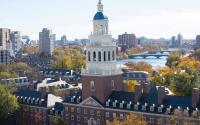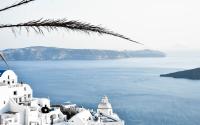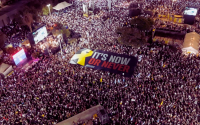23 February 2007Yahoo News!Kim Gamel
A suspected al-Qaida-linked insurgent leader accused of financing attacks and recruiting fighters was captured in southern Iraq, police said Friday. The U.S. military, meanwhile, said it was investigating reports of civilian casualties in fighting in Ramadi, the volatile capital of Anbar province. It said three U.S. soldiers were killed Thursday in combat in the province, but did not give specific locations or circumstances for the deaths.
Issa Abdul-Razzaq Ahmed, who was detained during a raid Thursday on a house in central Basra, has been traveling to neighboring countries to collect funds for militant operations in Iraq, provincial police commander Gen. Mohammed al-Moussawi said.
He also said the suspect, a 22-year-old Sunni, was on the Interior Ministry's most-wanted list and was accused of being a major figure in recruiting fighters. Police also found lists with the names of other wanted militants, maps and propaganda CDs.
"Working under the guise of a businessman, he has been shuttling between Syria and the United Arab Emirates to collect funds for the terrorists in Iraq," al-Moussawi said.
The announcement of the capture took on added significance, coming just days after Britain said it would withdraw 1,600 troops from the area in the coming months with hopes the Iraqis can take over their own security.
Basra, Iraq's second-largest city 340 miles southeast of Baghdad, and the region around it are predominantly Shiite and have seen little of the sectarian violence that has beset the capital, although rival Shiite militant factions often clash and Sunni insurgents maintain a presence.
Spokesman Lt. Col. Christopher Garver, meanwhile, said the military was investigating reports of civilian casualties during intense fighting between American troops and Sunni insurgents in Ramadi, 70 miles west of Baghdad.
A six-hour battle broke out Wednesday evening after insurgents armed with rocket-propelled grenades attacked U.S. troops from nearby buildings. Marine spokesman 1st Lt. Shawn Mercer said 12 insurgents were killed and there were no civilian casualties reported; Iraqi authorities said the dead included women and children.
The military said several buildings were damaged when the Americans responded with "precision guided munitions" that ended the fight.
However, Dr. Hafidh Ibrahim of the Ramadi Hospital said the bodies of 26 people, including four women and children, were pulled from the rubble of three houses damaged in the fighting.
Photographs made available to The Associated Press showed the bodies of two small boys wrapped in one blanket. Other photos showed four or five bodies covered by blankets, and several men clearing rubble.
The U.S. military is warning that insurgents are adopting new tactics in a campaign to spread panic after troops uncovered a car bomb factory west of Baghdad with propane tanks and chlorine cylinders — possible ingredients for more chemical attacks following three explosions involving chlorine.
Those blasts and recent attacks against helicopters have raised fears that insurgents are developing new ways to confront U.S. and Iraqi forces. Any increase in chemical bombings could complicate the Baghdad security crackdown, now in its second week.
Lt. Gen. Ray Odierno, the No. 2 American commander in Iraq, said he did not think the attacks signaled a more capable insurgency. Instead, he said they were an attempt to provoke fear and "create instability."
The raid on the car bomb factory late Tuesday near Karmah, in Anbar, uncovered a pickup truck and three other vehicles that were being prepared as car bombs, U.S. officials said.
"We also found ingredients to be used to devise or enhance explosives, such as fertilizer and chlorine cylinders," Odierno said.
Insurgents have detonated three trucks carrying chlorine canisters since late January. The most recent attack occurred Wednesday in Baghdad, killing five people and sending more than 55 to hospitals.
The general also said at least two suspects have been arrested in the downing of eight helicopters since Jan. 20, but he gave no further details.
Meanwhile, a top aide of radical Shiite cleric Muqtada al-Sadr has been released from U.S. custody after five months, an al-Sadr official said.
Salah al-Obeidi, a spokesman for al-Sadr, was freed Wednesday and appeared "in good shape" in Kufa, about 100 miles south of Baghdad, said the official, who spoke on condition of anonymity because he was not authorized to brief the media.
Al-Obeidi and another member of al-Sadr's inner circle, Muayed al-Khazraji, were taken in a raid in September by U.S. and Iraqi forces. No charges were made public, but U.S.-led authorities have increased pressure on al-Sadr and his Mahdi Army militia as part of sweeps to battle sectarian violence.
Al-Sadr's forces have significantly lowered their profile in parts of Baghdad since a major security effort began last week, including a drop in reports of Sunni killings blamed on Shiite death squads.






